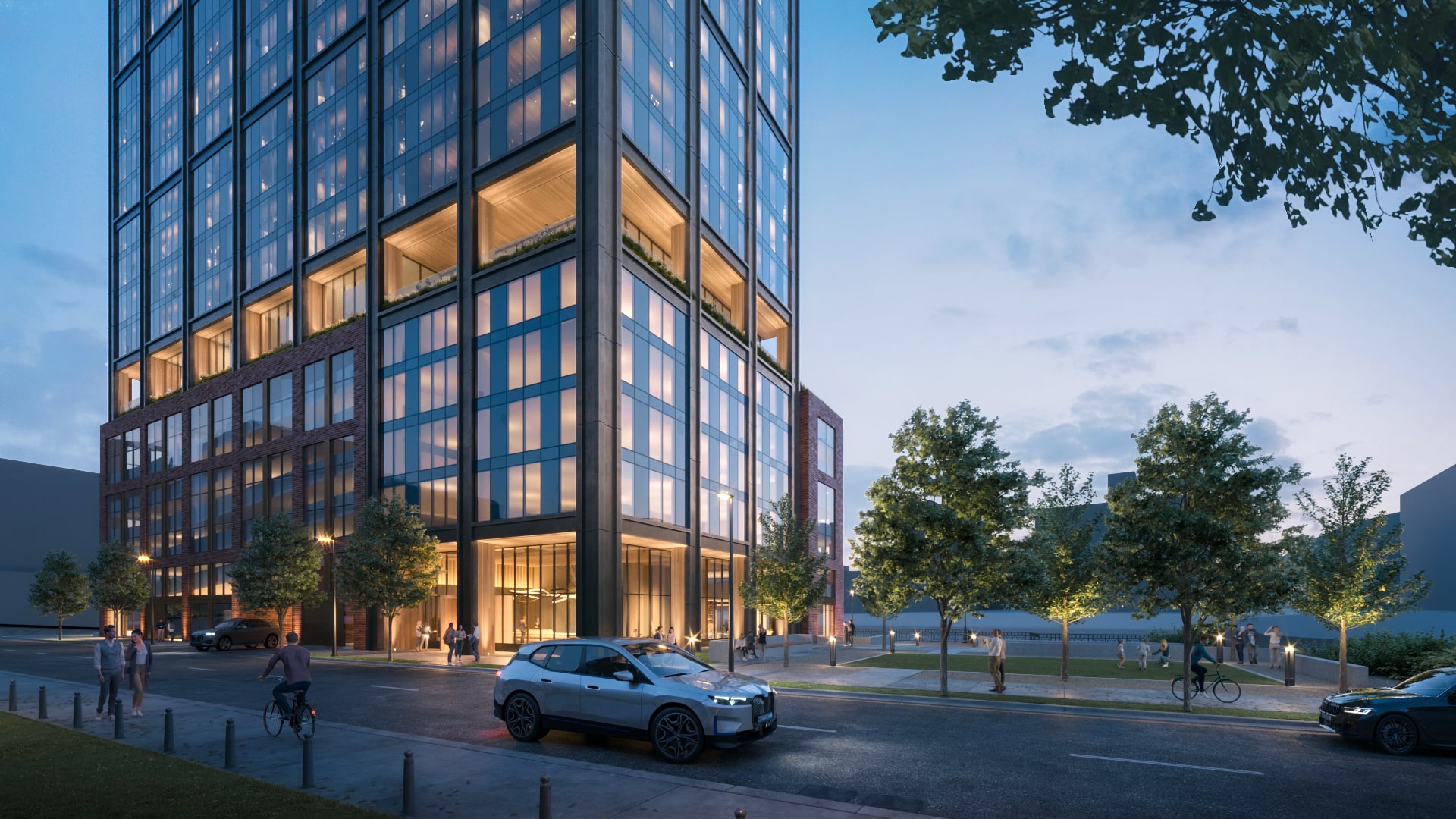Sustainable Certifications for Real Estate
December 9, 2023

Sustainability is a growing priority in real estate. Various certification systems now validate a property's environmental performance and operational efficiency, enhancing market value and attracting eco-conscious investors. This document focuses on four key certifications systems: LEED, Passive House Principles, SITES, and the Living Building Challenge Core Certification by the International Living Futures Institute.
LEED Certification
LEED is a globally recognized certification system developed by the United States Green Building Council (USGBC). It serves as a benchmark for sustainable building design, construction, and operation. Benefits of investing in a LEED-certified development include:
- Environmental Performance: LEED-certified buildings are designed and constructed with a focus on reducing energy consumption, conserving water, and minimizing waste generation. They also consider the use of sustainable and recycled materials, as well as indoor environmental quality.
- Market Recognition: LEED certification provides a clear and recognizable signal to investors and buyers that a property adheres to stringent environmental standards. LEED-certified properties carry a lower risk of becoming obsolete due to their sustainable features.
- Operational Efficiency: LEED properties tend to operate more efficiently, with lower utility costs and reduced environmental impact. This is highly attractive to investors who value cost savings and long-term financial viability.
- Financial Benefits: LEED-certified properties often command higher sale values and rental rates. Investors in such properties can benefit from the "green premium," translating into enhanced financial returns.
Passive House Certification (PHIUS Core 2021)
Passive House is a building standard and design approach that focuses on achieving exceptional energy efficiency, comfort, and superior indoor air quality. In the context of sustainable real estate, Passive House Principles bring several key advantages:
- Energy Efficiency: Passive House designs prioritize well-insulated, airtightness, and energy recovery ventilation. These features lead to a drastic reduction in energy consumption, which directly translates into cost savings and environmental benefits.
- Health and Comfort: Passive House principles emphasize superior indoor air quality and thermal comfort. Properties designed with these principles in mind offer exceptionally comfortable living and working environments, which are highly appealing to buyers and tenants.
- Reduced Carbon Footprint: By achieving remarkable energy efficiency, Passive House properties significantly reduce their operational carbon footprint. This aligns with sustainability goals and attracts environmentally conscious investors and users.
- Long-Term Savings: Properties designed according to Passive House Principles often experience reduced operational costs over the long term, making them an appealing choice for investors looking for stable and cost-effective investments.
LEED and Passive House Certification serve as vital tools for validating and quantifying the sustainability of real estate properties. Investors and buyers can rely on these certifications to assess a property's environmental performance, operational efficiency, and overall sustainability.
The inclusion of such certifications in sustainable real estate adds credibility, fosters market recognition, and contributes to the financial appeal of these properties, making them a smart choice for investors seeking both a financial return on investment and a commitment to a more sustainable future.
SITES Certification
The Sustainable SITES Initiative (SITES) is a comprehensive certification program designed to guide sustainable land development and management practices. Developed by experts in landscape architecture, environmental design, and sustainability, SITES was established to fill a gap in green building certifications, specifically addressing the environmental impact of landscapes and open spaces. The program sets rigorous performance-based criteria across areas such as soil management, water conservation, and habitat protection, aiming to enhance ecosystem services and reduce the ecological footprint of projects. SITES is often integrated with the LEED certification, providing a holistic approach to sustainability in the built environment.
- Focus on Sustainability: It emphasizes ecosystem services, water management, and reducing environmental impact.
- Applicable to Various Projects: SITES can be used for landscapes, urban developments, and open spaces.
- Performance-Based Criteria: Projects are assessed based on factors like soil health, water use, and site selection.
- Integrated with LEED: SITES complements LEED, targeting landscape sustainability.
International Living Future Institute
The International Living Future Institute (ILFI) was founded in 2006 as a visionary organization dedicated to promoting regenerative design and sustainability. It originated from the Cascadia Green Building Council, with a mission to redefine the relationship between the built environment and the natural world. ILFI's flagship program, the Living Building Challenge, set new standards for sustainable construction, pushing beyond traditional green building certifications by requiring projects to positively impact their surroundings. Over the years, ILFI has expanded its influence globally, fostering a movement towards living communities and regenerative design.
Living Building Challenge: A rigorous certification for sustainable buildings that meet high standards in seven key focus areas - energy, water, place, health + happiness, equity, beauty, materials.
Community and Collaboration: ILFI fosters collaboration across industries to create regenerative buildings and communities.
Advocacy and Education: The institute provides resources and education to advance the adoption of sustainable practices globally.
Energy Star
Energy Star is a program established by the U.S. Environmental Protection Agency (EPA) that promotes energy efficiency across buildings, appliances, and electronics. In the context of building efficiency, ENERGY STAR provides a widely recognized certification that indicates a building meets strict energy performance standards, using less energy, reducing greenhouse gas emissions, and saving money on utility bills. Buildings that earn the Energy Star label typically use about 35% less energy than typical buildings, which makes them not only more cost-effective but also environmentally responsible.
Make Smarter, More Sustainable Investments with Neutral
If you're ready to take the first step towards sustainable, long-term investments, Neutral has the perfect opportunity for you. We are committed to maximizing returns for our investors and fostering resilient, environmentally-friendly neighborhoods that inspire a brighter and more sustainable future for all.
With our expert guidance and innovative, flexible investment options, you can make a positive impact while securing your financial future. Contact us today, and let’s build tomorrow together!